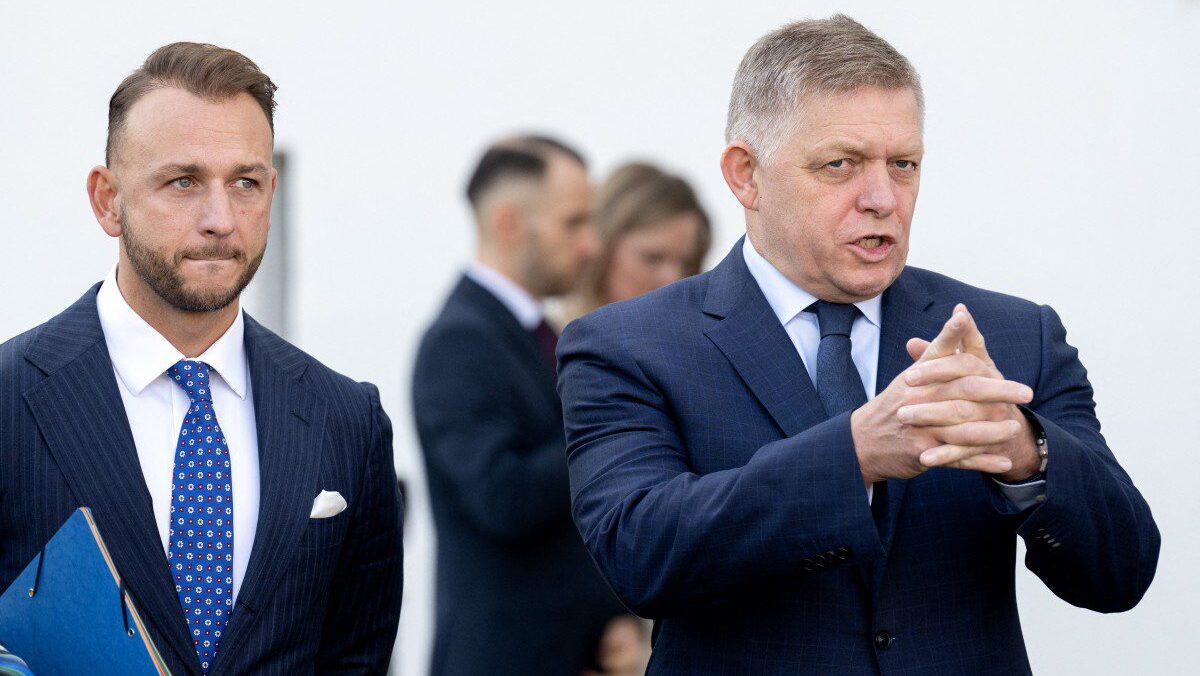
Slovakia’s Prime Minister Robert Fico (R) and Slovakia’s Interior Minister Matúš Šutaj Eštok on October 22, 2024.
Photo: JOE KLAMAR / AFP
The coalition crisis in Slovakia, which has left Robert Fico’s sovereignist government hanging by a thread, has still not been resolved, despite the prime minister’s pledge to do so by Monday, February 17th.
Fico, elected on a Eurosceptic, anti-immigration, anti-war, and pro-workers’ rights platform one-and-a-half years ago, has been trying to safeguard his thin majority in parliament.
The crisis was triggered by internal squabbles between his two junior coalition partners, the social democratic Hlas (Voice), and the right-wing nationalist Slovak National Party (SNS), which saw MPs quitting those two parties, leaving the government with 72 MPs in the 150-seat parliament.
Talks started Monday and continued on Tuesday to avert the need to call snap elections. The government parties must find a solution by the end of March when the parliament holds its next regular session.
The leader of the SNS party, Andrej Danko, has expressed his full support for Robert Fico—his party would not want new elections, as it is currently polling at 4% and is therefore in danger of not reaching the threshold to enter parliament.
The three MPs who quit the SNS party are demanding control of one ministry in return for their support.
Matúš Šutaj Eštok, the leader of Hlas, said his party will do everything to ensure the current government survives.
Fico has said that if his junior partners fail to resolve their internal differences, he would submit his proposals for a government reshuffle to the country’s president, Peter Pellegrini. The prime minister has hinted that he would offer a ministry to each of the two rebel groups within Hlas and SNS to secure their support.
The government has had to endure months of protests organised by the opposition Europhile liberal and centre-right parties, which accuse the cabinet of causing Slovakia to deviate from the European course and shifting its foreign policy towards Moscow. Fico has rejected the accusations and says he merely wants to have a pragmatic relationship with all the global powers.
A recent attempt to oust the government with a vote of no confidence in parliament failed, as the opposition could not gather enough MPs to form a majority.
Despite rhetoric from the opposition and international mainstream media, opinion polls do not suggest that there is huge dissatisfaction with the government. Fico’s left-wing nationalist Smer party is head to head with the main opposition liberal Progressive Slovakia party. Both are polling at 22%.
In third place is Smer’s junior partner, Hlas with 12%. Parliament outsider Republika—a potential Fico ally—and the opposition Christian Democratic Movement are both at 8%.
